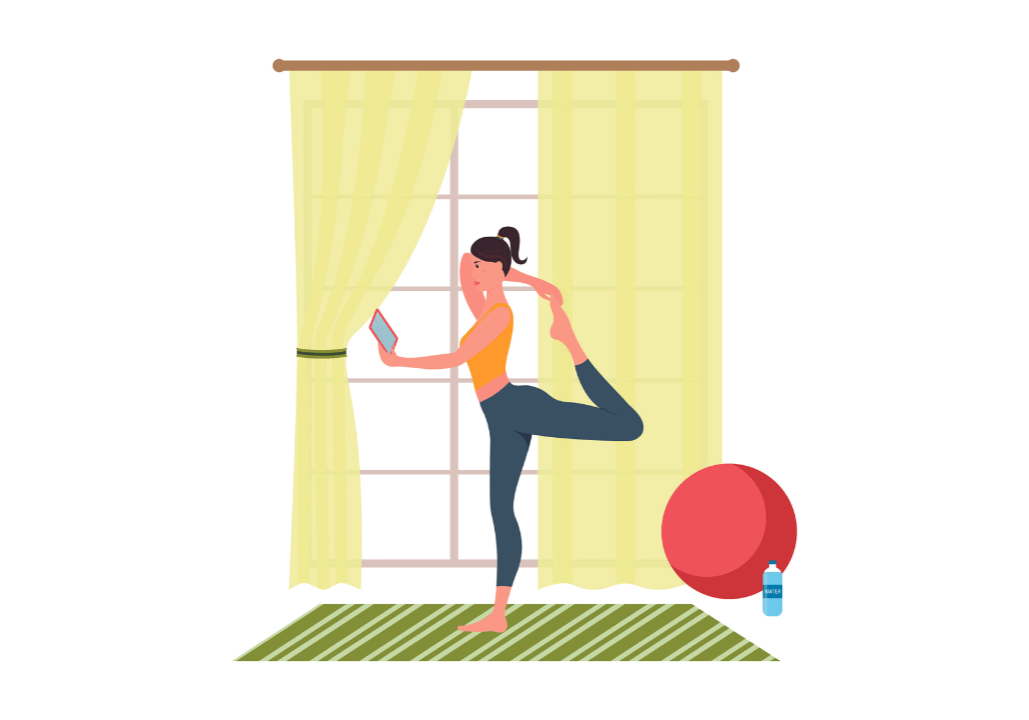
The science of scrolling
Perhaps all those people mindlessly scrolling on social media are really exploring the deeper meanings of yoga. Or perhaps not. By Victoria Jackson
I think we can all agree that one regret we’re unlikely ever to have is not spending quite enough time on social media! I justify my social media activity in various ways: small business owner(aka yoga teacher), the family overseas, keeping up with distant friends I don’t see often in person, not to mention the value of all those instructional yoga videos for perfecting my full pigeon pose or handstand press!
Although I try to limit my social media time, it’s easy to get sucked into mindless scrolling — no matter how many hours I spend on my yoga mat, cultivating awareness and practicing more mindful habits.
And I know I’m not the only one. One evening recently, I was waiting outside a yoga studio for class with eight or ten fellow yogis. As I looked around I noticed that everyone was standing with their head bent over a mobile phone. For a group of yogis who might claim the practice is about connection and being ‘in the moment’ we weren’t a great advertisement — as well as presenting an awful example of ‘tech neck’ rather than a beautiful upright standing posture.
I like to think that if we had similar waiting time after our class, we might have behaved differently. Perhaps our yoga practice would have reminded us that there is a different way, even in our very modern society.
The clever design of digital interfaces is well-known for delivering a dopamine hit as we comment, like and share on our never-endingscrolling journey. But what about the ancient ‘technology’ of yoga? Research on yoga suggests that dopamine is released in yoga practice too, alongside the other ‘happiness hormones’ oxytocin and serotonin. There’s also the endorphins we associate with the ‘yoga high’ we might feel after a vigorous, energetic practice. And that’s before we get to Polyvagal Theory, the neurotransmitter GABA, neuroplasticity, the positive effect of yoga on chronic pain, depression, PTSD… The list goes on.
With so much exciting science being published on the benefits of yoga I’m beginning to wonder whether that group of eager yoga students scrolling on their phones might actually have been reading up on the recent scientific research, rather than simply chatting with friends or doom scrolling through the latest news disaster.
I shouldn’t make assumptions. Has yoga taught me nothing about being less judgemental and more open to possibilities? Or maybe I picked up some bad habits during my social media time!
Victoria Jackson lives and teaches yoga in Oxford. Visit: victoriajacksonyoga.com or find her on Instagram @victoriajacksonyoga




